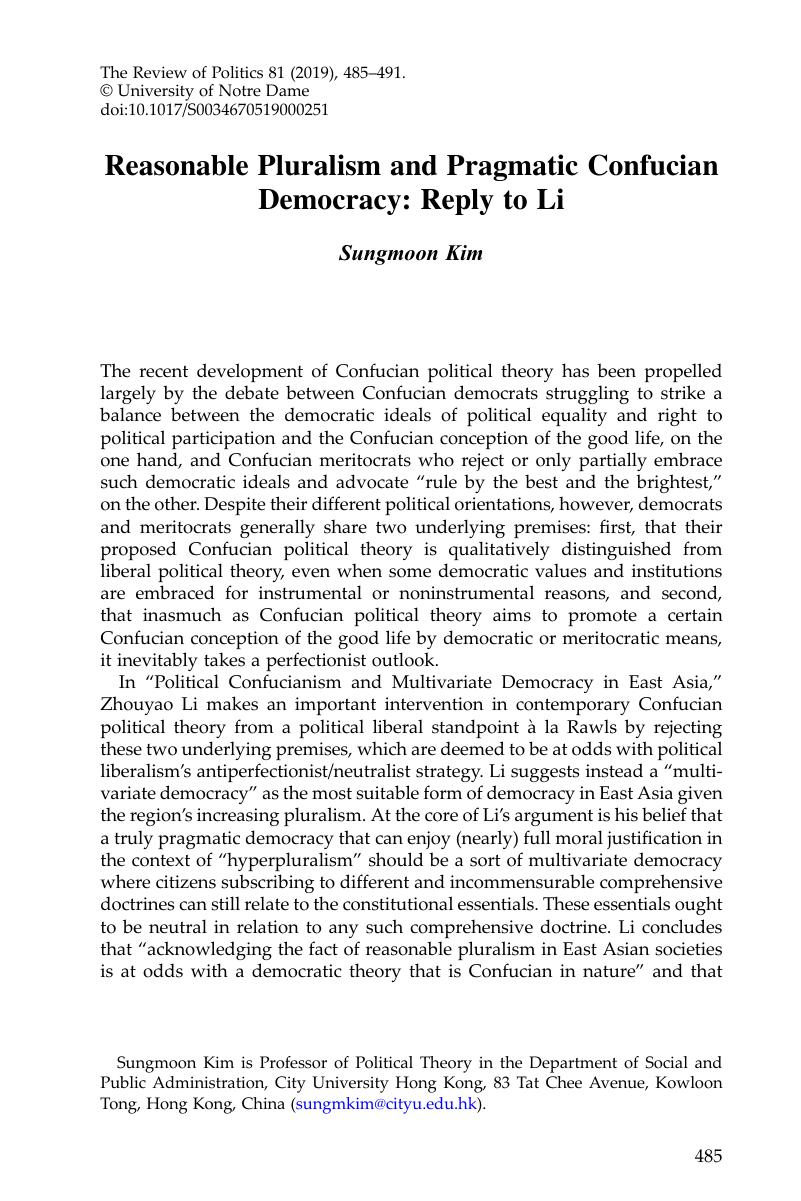Article contents
Reasonable Pluralism and Pragmatic Confucian Democracy: Reply to Li
Published online by Cambridge University Press: 22 July 2019
Abstract

- Type
- Research Article
- Information
- Copyright
- Copyright © University of Notre Dame 2019
References
1 For the central importance of public equality and equal constitutional rights to public reason Confucianism and pragmatic Confucian democracy, see Kim, Sungmoon, Democracy after Virtue: Toward Pragmatic Confucian Democracy (New York: Oxford University Press, 2018), 92–96CrossRefGoogle Scholar, and Public Reason Confucianism: Democratic Perfectionism and Constitutionalism in East Asia (New York: Cambridge University Press, 2016), 94–96Google Scholar.
2 Ferrara, Alessandro, The Democratic Horizon: Hyperpluralism and the Renewal of Political Liberalism (New York: Cambridge University Press, 2014)CrossRefGoogle Scholar.
3 See, for instance, Kim, Sungmoon, Confucian Democracy in East Asia: Theory and Practice (New York: Cambridge University Press, 2014), chap. 10CrossRefGoogle Scholar.
4 See Miller, David, On Nationality (Oxford: Oxford University Press, 1995)Google Scholar.
5 Kim, Public Reason Confucianism, 88.
6 Koh, Byung-ik, “Confucianism in Contemporary Korea,” in Confucian Traditions in East Asian Modernity, ed. Wei-ming, Tu (Cambridge, MA: Harvard University Press, 1996), 199Google Scholar.
7 I call this “the intelligibility condition” of public reason Confucianism. See Kim, Public Reason Confucianism, 15–16.
8 I allow no special moral and constitutional standing to fully comprehensive Confucianism (ibid., 160–65 and 194–201).
9 Kim, Democracy after Virtue, 75.
- 1
- Cited by




